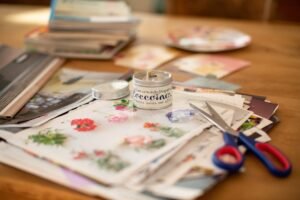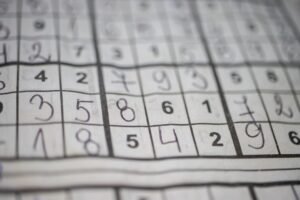Comprehensive Guide of Stamp Collecting
Overview
Stamp collecting, also known as philately, is a fascinating and rewarding hobby that involves the collection and study of postage stamps and related materials. This hobby allows enthusiasts to explore the history, art, and culture of different countries through their stamps. Collectors often focus on specific themes, such as historical events, famous personalities, or unique designs, making it a highly customizable pastime. Stamp collecting not only provides a sense of accomplishment as collectors build their collections, but it also fosters a community of like-minded individuals who share a passion for this intricate art form. The hobby can be pursued at various levels, from casual collecting to serious investment, and it offers opportunities for learning and discovery.
History
The history of stamp collecting dates back to the mid-19th century, shortly after the introduction of the first adhesive postage stamp, the Penny Black, in the United Kingdom in 1840. This innovation revolutionized postal services and sparked interest in collecting stamps. By the 1860s, stamp collecting had gained popularity in Europe and North America, with collectors forming clubs and societies to share their passion. The first stamp catalog was published in 1861, further fueling the hobby’s growth. Over the years, stamp collecting has evolved, with collectors now focusing on various aspects, including rare stamps, thematic collections, and postal history. The hobby has also adapted to technological advancements, with online platforms allowing collectors to buy, sell, and trade stamps globally.
Popularity and Demographics
Stamp collecting remains a popular hobby worldwide, attracting individuals of all ages and backgrounds. It is estimated that millions of people engage in stamp collecting, with a significant number of enthusiasts in countries like the United States, Germany, and the United Kingdom. The hobby appeals to a diverse demographic, including children, who often start collecting as a fun and educational activity, and adults, who may pursue it as a serious investment or a means of preserving history. Stamp shows, exhibitions, and clubs provide opportunities for collectors to connect, share knowledge, and showcase their collections. The rise of online communities and social media has also contributed to the hobby’s popularity, allowing collectors to engage with others and access resources that enhance their collecting experience.
Sponsored Hobbyists and Vendors
Become a Sponsor!
Affiliate Disclaimer: Throughout some sections below, Hobby Spotlight may suggest some tools, equipment or material using affiliate links. By purchasing any of those items, Hobby Spotlight may earn a small commission. This helps fund our website, content and services without directly charging our users.
Getting Started
Stamp Collecting Tools:
Beginner
- Stamp Album: A basic album to store and organize your stamp collection.
- Tweezers for Stamps: Specialized tweezers to handle stamps without damaging them.
- Magnifying Glass: A magnifying glass to examine the details of stamps.
- Stamp Hinges: Adhesive hinges to mount stamps in an album.
- Stamp Catalog: A reference book to help identify and value stamps.
Intermediate
- Stamp Storage Boxes: Boxes for safe storage of loose stamps.
- Perforation Gauge: A tool to measure the perforation of stamps.
- Watermark Detector: A device to detect watermarks on stamps.
- Stamp Tongs: Long-handled tongs for safely handling stamps.
- Philatelic Software: Software for organizing and managing your stamp collection.
Basic Requirements and Initial Setup:
- Stamp Album: A dedicated album or binder is essential for organizing and displaying your collection. Look for albums with clear plastic sleeves to protect the stamps.
- Stamp Tweezers: These are specialized tweezers designed to handle stamps without damaging them. They help prevent fingerprints and oils from your skin from affecting the stamps.
- Magnifying Glass: A magnifying glass is useful for examining the details of stamps, such as perforations, watermarks, and printing techniques, which can be crucial for identification and valuation.
Fundamental Skills to Learn:
- Identification: Learning to identify different types of stamps, including their origins, printing methods, and historical significance.
- Condition Assessment: Understanding how to evaluate the condition of stamps, including grading them based on factors like centering, gum condition, and perforation.
- Research Skills: Developing the ability to research stamps using catalogs, online resources, and philatelic literature to gain knowledge about their history and value.
- Organization: Creating a systematic approach to organizing your collection, whether by country, theme, or date of issue.
- Networking: Engaging with other collectors through clubs, online forums, and exhibitions to share knowledge and trade stamps.
Sub-Hobby/Common Activities:
- Thematic Collecting: Focusing on specific themes such as animals, space, or historical events, allowing for a more curated collection.
- First Day Covers: Collecting envelopes that bear a stamp canceled on the first day of issue, often featuring special designs related to the stamp.
- Postal History: Exploring the history of postal services through the study of used stamps, postmarks, and historical mail routes.
- Exhibiting: Preparing and displaying your collection in exhibitions, which can involve creating a narrative and showcasing the significance of your stamps.
- Stamp Trading: Engaging in the exchange of stamps with other collectors to enhance your collection and discover new items.
Terminology:
- Philately: The study and collection of postage stamps and related materials.
- Perforation: The series of small holes punched between stamps to allow for easy separation.
- Mint Condition: A stamp that has never been used and retains its original gum and freshness.
- Used Stamp: A stamp that has been affixed to a piece of mail and canceled, indicating it has been used for postage.
- Watermark: A recognizable image or pattern embedded into the paper of a stamp, used for identification and security.
- Catalog Number: A unique identifier assigned to a stamp in a philatelic catalog, used for reference and valuation.
- Block: A group of stamps that are still attached together, typically in a square or rectangular formation.
- FDC (First Day Cover): An envelope with a stamp canceled on the first day of its issue, often collected for its commemorative value.
- Cancellation: The mark or impression made on a stamp to indicate it has been used for postage.
- Souvenir Sheet: A small sheet of stamps, often issued to commemorate a specific event or theme, usually containing one or more stamps.
Advanced Topics and Specializations
Advanced Tools and Equipment:
- High-Quality Stamp Tweezers: Precision tweezers designed for handling delicate stamps without damaging them.
- Stamp Mounts and Storage Pages: Acid-free mounts and archival storage pages to protect and display stamps safely.
- Philatelic Magnifying Glass: A high-quality magnifying glass with a built-in light for examining fine details on stamps.
- Stamp Album with Customizable Pages: A premium stamp album that allows collectors to organize and showcase their collection effectively.
- Professional Stamp Catalog: An extensive catalog that provides detailed information on stamp values, history, and rarity.
Advanced Projects and Achievements:
- Exhibition-Quality Collections: Curating a themed collection of rare stamps, showcasing historical significance and artistic value, often displayed in local or national exhibitions.
- Philatelic Research Publications: Writing and publishing articles or books on specific aspects of stamp collecting, such as the history of a particular stamp series or country.
- Participation in Philatelic Competitions: Competing in national and international stamp exhibitions, earning awards for exceptional collections and presentations.
Advanced Techniques and Methods:
- Condition Assessment: Learning to evaluate the quality of stamps based on factors like centering, perforation, and gum condition to determine their value.
- Expertise in Authentication: Developing skills to identify genuine stamps versus forgeries using tools like UV light and watermark detectors.
- Advanced Mounting Techniques: Utilizing archival-quality materials and methods for mounting stamps to preserve their condition and enhance display aesthetics.
Specializations and Niche Areas:
- Topical Collecting: Focusing on stamps that represent specific themes, such as animals, space exploration, or famous personalities.
- Postal History: Collecting items related to the history of postal services, including covers, postmarks, and historical documents.
- Rare and Limited Editions: Specializing in acquiring and trading rare stamps, including misprints and limited-run issues.
- Country-Specific Collections: Concentrating on stamps from a particular country, exploring its postal history and cultural significance.
- First Day Covers: Collecting envelopes that bear stamps canceled on their first day of issue, often featuring special designs and cancellations.
Future Trends and Innovations:
- Increased use of digital platforms for buying, selling, and trading stamps, enhancing accessibility for collectors worldwide.
- Growing interest in sustainability, with collectors focusing on stamps that promote environmental awareness and conservation.
- Integration of augmented reality (AR) to enhance the experience of viewing and interacting with stamp collections.
- Emergence of online communities and forums that facilitate knowledge sharing and collaboration among collectors.
- Development of mobile apps that assist in cataloging collections and tracking market values in real-time.
Technology Integrations:
- Digital Cataloging Tools: Software and apps that help collectors organize and manage their collections efficiently.
- Online Marketplaces: Platforms that connect buyers and sellers, providing a space for trading and auctioning stamps.
- 3D Printing for Display: Using 3D printing technology to create custom frames and mounts for displaying stamps.
- Virtual Reality Exhibitions: Hosting virtual exhibitions that allow collectors to showcase their collections to a global audience.
- Blockchain for Provenance Tracking: Utilizing blockchain technology to verify the authenticity and ownership history of rare stamps.
Further Learning and Resources
Books:
- The World of Stamp Collecting by John Smith: An introductory guide that covers the basics of stamp collecting, including how to start, what to look for, and tips for organizing your collection.
- Stamp Collecting for Dummies by John Wiley & Sons: A comprehensive guide that simplifies the process of stamp collecting, offering practical advice and insights for new collectors.
- The Beginner’s Guide to Stamp Collecting by Mary Johnson: This book provides step-by-step instructions for starting a stamp collection, including resources for finding stamps and understanding their value.
- The Encyclopedia of Stamps by David Brown: A detailed reference work that covers the history, production, and significance of stamps, ideal for serious collectors looking to deepen their knowledge.
- Advanced Stamp Collecting Techniques by Susan Green: This book delves into specialized collecting strategies, including thematic collections and investment strategies for serious philatelists.
Websites:
- American Philatelic Society, https://www.stamps.org – A leading organization for stamp collectors, offering resources, events, and a community for enthusiasts.
- StampWorld, https://www.stampworld.com – An extensive online catalog of stamps from around the world, allowing users to buy, sell, and trade stamps.
- Colnect, https://colnect.com – A global platform for collectors to manage their collections, connect with other collectors, and trade stamps.
- Philatelic Database, https://www.philatelicdatabase.com – A comprehensive resource for stamp collectors, featuring articles, guides, and a marketplace for buying and selling.
- eBay Stamps, https://www.ebay.com/b/Stamp-Collecting/2605/bn_56761015 – A popular online marketplace where collectors can find a wide variety of stamps for sale from different sellers.
Courses:
- Stamp Collecting for Beginners, https://www.udemy.com/course/stamp-collecting-for-beginners/ – An introductory course covering the basics of stamp collecting, including how to start a collection and identify stamps.
- Advanced Stamp Collecting Techniques, https://www.coursera.org/learn/advanced-stamp-collecting – A course designed for experienced collectors looking to enhance their skills in valuation, preservation, and trading.
- Philately: The Art of Stamp Collecting, https://www.skillshare.com/classes/philately-the-art-of-stamp-collecting/123456 – A creative course that explores the artistic aspects of stamp collecting and how to curate a visually appealing collection.
- Online Stamp Collecting Community, https://www.stampcommunity.org – A platform offering forums, discussions, and resources for collectors of all levels to learn and share their passion.
- Stamp Collecting Masterclass, https://www.masterclass.com/classes/stamp-collecting-masterclass – A comprehensive masterclass that covers everything from history to investment strategies in stamp collecting.
Content Creators and Community
Content Creators:
- The Stamp Collector (YouTube): A channel dedicated to the art of stamp collecting, featuring tips on how to start, organize, and expand your collection.
- Stamp Collecting (Instagram): A vibrant community sharing stunning images of rare stamps and collections, along with collecting tips and stories.
- Stamp World (Website): An extensive online platform for stamp collectors, offering a database of stamps, forums, and resources for collectors of all levels.
- Stamp Show Here Today (YouTube): A podcast-style channel discussing various aspects of stamp collecting, including interviews with experts and collectors.
- Stamp Collectors Group (Facebook): A community for collectors to share their finds, ask questions, and connect with fellow enthusiasts.
- Stamp Collecting on Pinterest (Pinterest): A collection of boards featuring tips, resources, and beautiful images of stamps from around the world.
- r/stamps (Reddit): A subreddit dedicated to stamp collecting, where users can share their collections, ask for advice, and discuss various topics related to stamps.
Online Forums and Social Media Groups:
- Reddit – /r/stamps: A community for stamp collectors to share their collections, ask questions, and discuss various topics related to philately.
- Facebook Stamp Collecting Groups: Various groups where collectors share tips, photos, and advice on building and maintaining their collections.
- Stamp Collecting Forum: An online forum dedicated to discussions about stamps, collecting techniques, and market trends.
- Instagram Hashtags (#stampcollecting, #philately): Follow trending posts and discover new stamps and collecting techniques through visual content.
- Pinterest Boards: Explore boards filled with resources, tips, and inspiration for stamp collectors of all levels.
Local Clubs and Organizations:
- Local Philatelic Societies: Many cities have clubs where stamp collectors meet to share knowledge, trade stamps, and participate in events.
- Community Workshops: Some libraries and community centers offer workshops on stamp collecting basics and advanced techniques.
- Stamp Shows: Local and regional stamp shows provide opportunities for collectors to buy, sell, and trade stamps while networking with others.
- School Stamp Collecting Clubs: Many schools have clubs that encourage students to learn about history and geography through stamp collecting.
- Meetup Groups: Platforms like Meetup.com host local gatherings for stamp collectors to connect and share their passion.
Events, Meetups, and Conventions:
- World Stamp Show: A major international event showcasing stamps and philately, featuring exhibits, auctions, and workshops.
- Local Stamp Fairs: Regularly held events where collectors can buy, sell, and trade stamps while meeting fellow enthusiasts.
- Philatelic Exhibitions: Events that highlight rare and valuable stamps, often including competitions and educational sessions.
- Workshops at Stamp Shows: Learn from experts about various aspects of stamp collecting, including preservation and valuation.
- Annual Philatelic Conventions: Gatherings that combine exhibitions, trading, and networking opportunities for stamp collectors.
Associated Hobbies
- Postcard Collecting: Similar to stamp collecting, postcard collecting involves gathering postcards from various places, often featuring unique artwork or historical significance. Collectors may focus on specific themes, such as vintage postcards or those depicting certain landmarks.
- Coin Collecting: Coin collecting, or numismatics, is a popular hobby that complements stamp collecting. Many collectors enjoy the historical and artistic aspects of coins, often seeking rare or limited-edition pieces to add to their collections.
- Antique Collecting: Collecting antiques can go hand in hand with stamp collecting, as both hobbies involve appreciating history and craftsmanship. Many stamp collectors also enjoy finding and preserving antique items that reflect the same historical periods as their stamps.
- Art Collecting: Some stamp collectors expand their interests to include art collecting, focusing on pieces that feature stamps or postal themes. This can include paintings, prints, or sculptures that celebrate the world of philately.
- Model Building: Model building can be a complementary hobby, as collectors often create dioramas or displays that showcase their stamp collections. This hobby allows for creativity and attention to detail, similar to the precision required in stamp collecting.
- Historical Research: Many stamp collectors develop an interest in historical research, delving into the stories behind the stamps they collect. This can involve studying the history of postal services, significant events depicted on stamps, or the artists who designed them.
- Scrapbooking: Scrapbooking can be a creative outlet for stamp collectors, allowing them to incorporate their stamps into artistic layouts. This hobby combines elements of design and storytelling, making it a fun way to showcase collections.
- Traveling: Traveling often enhances the stamp collecting experience, as collectors seek out stamps from different countries and regions. This hobby encourages exploration and cultural appreciation, as collectors learn about the places and histories behind the stamps they acquire.
Cost and Budgeting
Initial Investment and Ongoing Costs:
- Initial Investment: The cost to start stamp collecting can vary widely based on the type of stamps you wish to collect. A beginner can start with a basic starter kit, which may include a few stamps, an album, and tools for handling stamps, costing around $20-$50. For more serious collectors, initial investments can range from $100 to several thousand dollars, depending on the rarity and condition of the stamps.
- Ongoing Costs: Ongoing costs may include purchasing new stamps, which can range from a few cents for common stamps to hundreds or thousands of dollars for rare ones. Additionally, collectors may want to invest in protective materials like albums, mounts, and storage boxes, which can add up over time. Membership fees for stamp clubs or subscriptions to philatelic magazines may also be considered.
Budget-Friendly Options:
- Starter Kits: Many retailers offer affordable starter kits that include a selection of stamps, an album, and basic tools, making it easy for beginners to get started without a large investment.
- Local Post Offices: Check with your local post office for new stamp releases, which are often available at face value and can be a cost-effective way to build your collection.
- Stamp Shows and Fairs: Attending local stamp shows can provide opportunities to purchase stamps at lower prices, as well as to trade with other collectors.
Where to Buy:
- Local Stamp Dealers: Visiting local stamp dealers can provide access to a variety of stamps and expert advice on building your collection.
- Online Marketplaces: Websites like eBay and Delcampe offer a vast selection of stamps from various sellers, allowing collectors to find specific items or deals.
- Philatelic Societies: Joining philatelic societies can provide access to exclusive sales, auctions, and resources for purchasing stamps.
Money Making
How to Turn the Hobby into a Profession or Side Hustle:
- Stamp Dealer: Start a business buying and selling stamps. You can operate online through platforms like eBay or create your own website. By building a reputation as a knowledgeable dealer, you can attract collectors and enthusiasts looking for rare or specific stamps.
- Stamp Appraiser: If you have extensive knowledge of stamp values and history, consider offering appraisal services. You can help collectors determine the worth of their collections, which can be particularly valuable for insurance purposes or when selling stamps.
- Stamp Collecting Workshops: Share your passion by hosting workshops or classes for beginners. Teach participants about the history of stamps, how to start a collection, and the best practices for preserving and valuing their stamps. This can be done in person or through online platforms.
- Stamp Blog or YouTube Channel: Create a blog or YouTube channel dedicated to stamp collecting. Share tips, tutorials, and insights into the hobby. Monetize your content through advertising, sponsorships, or affiliate marketing by promoting stamp-related products and services.
- Custom Stamp Design: If you have artistic skills, consider designing custom stamps for events, businesses, or personal use. This could include wedding invitations, business branding, or unique gifts. Partner with printing companies to produce and sell your designs.
Benefits and Enjoyment
Physical, Mental, and Social Benefits:
- Fine Motor Skills: Stamp collecting involves careful handling and organization of small items, which can enhance fine motor skills and hand-eye coordination. The precision required in sorting and placing stamps can be beneficial for dexterity.
- Mental Stimulation: Engaging in stamp collecting stimulates the brain through research, cataloging, and learning about the history and significance of different stamps. This mental engagement can improve cognitive function and memory retention.
- Social Interaction: Stamp collecting can foster social connections through clubs, exhibitions, and online communities. Sharing collections, trading stamps, and discussing interests with fellow collectors can lead to lasting friendships and a sense of belonging.
Success Stories and Inspirational Examples:
- John McCarthy: A passionate stamp collector who turned his hobby into a successful business, John McCarthy opened a stamp shop that became a local hub for collectors. His expertise and dedication have inspired many newcomers to the hobby.
- Dr. John McCaffrey: An avid philatelist, Dr. McCaffrey has authored several books on the history of stamps and their cultural significance. His work has not only educated others but also elevated the status of stamp collecting as a serious academic pursuit.
- Linda Smith: A renowned stamp collector who has won multiple awards at national exhibitions, Linda Smith has used her platform to promote the hobby, encouraging young people to explore the world of philately through workshops and educational programs.
Ways to Enjoy and Grow in the Hobby:
- Attend Stamp Shows: Participating in stamp shows and exhibitions allows collectors to meet others, discover rare stamps, and learn from experts. These events often feature workshops and presentations that can enhance your knowledge and skills.
- Join a Philatelic Society: Becoming a member of a local or national philatelic society provides access to resources, newsletters, and networking opportunities. These societies often organize events and competitions that can enrich your collecting experience.
- Expand Your Collection: Challenge yourself to explore different themes, countries, or historical periods in your stamp collection. This can keep the hobby fresh and exciting while also broadening your knowledge of world history and culture.
Challenges and Solutions
Common Challenges Faced by Hobbyists:
- Cost of Stamps: Stamp collecting can become costly, especially when pursuing rare or limited-edition stamps. Collectors may find themselves spending significant amounts on individual pieces, which can strain budgets.
- Storage and Preservation: Properly storing and preserving stamps is crucial to maintaining their condition. Many hobbyists struggle with finding the right materials and methods to protect their collections from damage.
- Knowledge and Research: The world of stamp collecting is vast, with numerous types, eras, and countries to explore. New collectors may feel overwhelmed by the amount of information available and may struggle to identify valuable stamps.
Tips for Overcoming These Challenges:
- Set a Budget: Establish a clear budget for your stamp collecting hobby. This will help you prioritize your purchases and avoid overspending on individual stamps.
- Invest in Proper Storage: Use acid-free albums, sleeves, and boxes to store your stamps safely. Investing in quality storage solutions will help preserve the condition of your collection over time.
- Join a Community: Engage with local or online stamp collecting communities. These groups can provide valuable resources, advice, and support, making it easier to learn and grow your collection.
Safety Considerations and Best Practices:
- Handle stamps with clean, dry hands to avoid transferring oils or dirt that can damage them.
- Store your collection in a cool, dry place away from direct sunlight to prevent fading and deterioration.
- Use gloves when handling particularly valuable or fragile stamps to minimize the risk of damage.
- Regularly check your collection for signs of damage or pests, and take appropriate action to address any issues.
- Educate yourself about the legalities of buying and selling stamps, especially when dealing with rare or high-value items.
Conclusion and Encouragement
Recap of Key Points:
- Stamp collecting, also known as philately, is a fascinating hobby that allows individuals to explore history, art, and culture through postage stamps from around the world.
- This hobby can be pursued at various levels, from casual collecting of interesting stamps to serious investment in rare and valuable pieces.
- Stamp collecting encourages organization and research skills, as collectors often categorize their stamps by country, theme, or time period.
- It provides a unique opportunity to connect with other collectors through clubs, online forums, and exhibitions, fostering a sense of community.
- Stamp collecting can be a rewarding investment, as certain stamps appreciate in value over time, making it both a hobby and a potential financial asset.
Encouragement to Start and Enjoy the Hobby:
- Stamp collecting is an accessible hobby that requires minimal initial investment. You can start with stamps from your own mail or purchase inexpensive starter kits.
- This hobby allows for creativity and personal expression, as you can curate a collection that reflects your interests, whether they be historical events, wildlife, or famous personalities.
- Stamp collecting can be a relaxing and meditative activity, providing a break from the fast-paced world and allowing you to immerse yourself in the stories behind each stamp.
Final Tips and Motivational Thoughts:
- Stay organized by using albums or stock books to keep your stamps safe and well-preserved. This will make it easier to showcase your collection and track your progress.
- Don’t hesitate to reach out to fellow collectors for advice and tips. The stamp collecting community is welcoming and eager to share knowledge and experiences.
- Remember that the joy of stamp collecting lies in the journey, not just the end goal. Enjoy the process of discovering new stamps and learning about their history and significance.

















